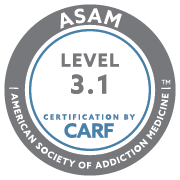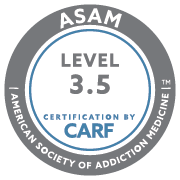I am a card-carrying introvert. This surprises many people as I talk and interact with people as a profession, but when I’m not at work, I am a hermit. So you might think that “social distancing” is easy for me (and let me insert this….it is not “social” distancing, it is “physical” distancing….more on that in a minute), but even I am a bit unnerved by how COVID-19 has had a ripple effect on our social connections.
If I hone in on how COVID-19 has specifically impacted my small corner of the world, I feel unsettled and grateful at the same time. I am unnerved to walk into Albertsons and see that there are completely empty shelves; I feel surreal to see a Billings Police Officer patrolling the aisles of Costco; I feel sad for my children and them missing out on their social relationships with their friends at school. I even feel a little sad for my cat who is wondering why all the humans are around her so much…..At the same time I am knee-buckling grateful that I have food and warmth and shelter.
On the professional side, my clients (and coworkers, honestly) are struggling with the looming question mark of when this might end. Several of them have concerns about being able to pay their bills as COVID-19 has impaired their ability to work. Some are struggling to connect with me since they cannot come into my office (even using telehealth, 90% of our communication is non-verbal…those little nuances, tics and inflections that do not transfer completely with technology). Some are early in their recovery and are finding that their continuing support system in the form of 12-step meetings has morphed from being able to see, touch and smell the experience, strength and joy that come from The Rooms to having to rely on a voice over the phone or a small image on a Skyped computer screen.
The truth is, our brains thrive off of interaction from those around us, even for us introverts. From a human development perspective, one of the key ingredients in healthy brain development in infants and children is interaction with other human beings. As tiny humans, infants and children learn communication, empathy, trust and their place in the world based on contact and interface with others. As adults, that scaffolding of personality and perspective continues to evolve and develop. In many ways, our emotional health relies on our connection to others; there is a reason that “solitary confinement” is considered punishment. In order to be healthy, our brain needs emotional interaction and social connection.
The opposite of addiction is connection. When we are connected to each other and have safety and trust we are less likely to gravitate towards unhealthy use of substances. In his book The Social Animal, David Brooks writes “…this is a story of fellowship. Because when you look deeper into the unconscious, the separations between individuals begin to get fuzzy. It becomes ever more obvious that the swirls that make up our own minds are shared swirls. We become who we are in connection with other people becoming who they are.” So how do we continue to be mentally healthy while practicing physical distancing? The obvious answers come to us from technology: if COVID-19 had struck even 10 years ago, we would be struggling more than we are now. Technology has blessed us with being able to hear and see each other from across the world and across the street. While it does not replace the physical connection (see a study by Harry Harlow about infant rhesus monkeys for more on the importance of touch….but that’s for a different blog), technology has allowed us to grocery shop, work and socialize from the comfort (if not verging on claustrophobic) and safety of our homes.
Perhaps the message and silver-lining from all of this (in addition to being an introvert I am also a resilient optimist….give me lemons and will not only make lemonade but also a meringue pie….) is to remember that we are lucky: despite physical distancing we are able to continue to do many of the same things we have previously, just differently. It may also be a reminder to reset and focus ourselves on our family and homes instead of all those other worldly distractions. Perhaps instead of feeling annoyed and frustrated about the chaos of our lives, this is a time to remember what is going well for us. I stumbled across this poem on social media that reflects our current mood and situation:
“And the people stayed home. And read books, and listened, and rested, and exercised, and made art, and played games, and learned new ways of being, and were still. And listened more deeply. Some meditated, some prayed, some danced. Some met their shadows. And the people began to think differently.
And the people healed. And, in the absence of people living in ignorant, dangerous, mindless, and heartless ways, the earth began to heal.
And when the danger passed, and the people joined together again, they grieved their losses, and made new choices, and dreamed new images, and created new ways to live and heal the earth fully, as they had been healed.”
Kitty O’Meara “And the People Stayed Home” (March, 2020)
So, stay home but stay connected. Love your family and be reminded of the good things we do have in this world. Be grateful for the technology that allows us to stay together while being apart. Physically distance while socially connecting. Take care of each other.
References:
Brooks, D. (2012). The Social Animal. Random House; New York, NY.
O’Meara, K. (2020). And the People Stayed Home. Blog: The Daily Round, March 2020.
Click here for resources to help you cope with COVID-19.
We are here for you 24/7: Call 800-227-3953 or complete our online request form.





